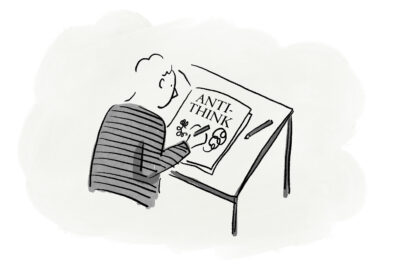Probably not.
Finding your brand’s purpose is the easy part. Your purpose can be to solve world hunger, win an Oscar or go to Mars. But to even come close to it, you need to actually do something about it, something that demonstrates your drive to fulfil that purpose. And therein lies the problem: many brands put mountains of effort into identifying their purpose, but doing very little to fulfil it.
Purpose is well-intentioned, but too often all talk and no action. Many brands can say they’re purpose-driven, but often it’s just a nice bit of narrative and nothing more. Purpose is trendy and these days it’s especially ‘green’. It’s likely you’ve seen the greenwashing bandwagon roll by, and it’s getting crowded onboard.
When we devise a well-tuned piece of strategy, it’s never about creating a nice-looking presentation. It’s about inspiring actions that will make a difference. For example, we recently worked with the team at A Plastic Planet whose purpose is to reduce plastic waste. They put their purpose to use with PlasticFree, one of the world’s first platforms for designers to discover alternative materials that reduce our reliance on plastic. Beyond just the creation of a digital platform, their purpose can be felt through each and every one of their activations — every talk, every festival, every article. And as a result, their audience has joined them in fulfilling their purpose.
There are two deciding factors that render ‘sustainability’, as a word, inadequate. First, the parameters that define it are always changing. For example, the benefits of buying carbon offsetting credits have recently been debunked. An electric car may reduce emissions, but sourcing the raw materials for its battery can be disastrous for the environment. It’s a slippery slope, meaning the word needs to be used very carefully. Most of the time, it isn’t. To us, that’s the second nail in the sustainability coffin: it is overused to oblivion.
We have the utmost respect for sustainability and what it stands for, but given the word’s precarious place in the world, we’re opting for an alternative. That’s why we want to reframe the conversation from ‘sustainable’ to ‘responsible.’ Responsibility is clarity. It’s not just science, it’s common sense, something our moral compass leads us to. We know responsibility when we see it.
For example, when we worked with the team at Heckfield Place, a beautiful countryside escape just an hour outside London, we sought to create a new approach to hospitality, one that sees the hotel as part of a delicately balanced ecosystem. Heckfield understand their responsibility to the land and community around them, and we helped map out what that means with a 100-year vision.
Responsibility is about taking ownership of your impact on the world. It’s about leading with optimism and creative potential. It’s bringing together equal parts trust and desire, and it’s about creating something that’s both useful and beautiful.
Data is everywhere. There are approximately 400,000 bytes of data for every grain of sand on earth. And while we also love numbers and have never met an analytic we didn’t like, we also know there’s more to life than data.
Intuition, for example. Emotion, artistry and creativity. The stuff that separates us from the robots, at least for now. But sometimes our heads are too far in the cloud to see it.
Regardless of the sector we’re working in, our goal is to humanise strategy. For example, our partners at Xeros work in the science and innovation space, their flagship product is an ingenious tool that stops harmful microplastics from entering our water supply. All the more reason to champion a simple and human communication style, driving an emotional response to something most would never think twice about: their washing machines.
In the same way that a washing machine plug-in on its own isn’t sexy, numbers alone are powerless. It takes intuition, beauty and emotion to elevate them into something powerful. Give us the data, and we’ll do the rest.
Overused as it may be, “collaboration,” is one term we can get behind. So is “togetherness,” and the much-overused phrase that sends a real cringe down our spines: we don’t work in silos.
It’s all true.
We don’t work alone. Instead, we surround ourselves with a community of people we know and admire, coming from a variety of backgrounds and disciplines. Consider us your partners in knowledge, who know the true potential of a well-timed introduction.
Understanding the value of radical collaboration drove the formation of The New Standard, the collective we formed in 2021 with interior design and architecture studio Universal Design Studio and industrial designers Map Project Office. Working together from one studio, we’re able to share knowledge across industries and across individual projects. We look at problems from multiple angles, across backgrounds and disciplines. It goes to show that two heads are better than one. We will find richer solutions if we look at the problem from many perspectives, rather than just a few.
